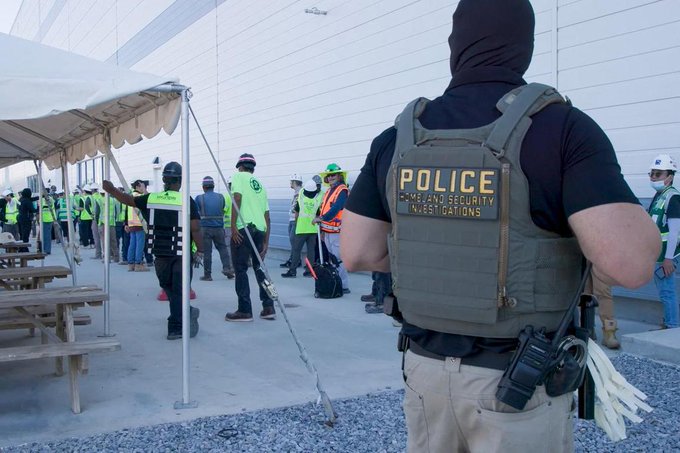South Korea has successfully concluded negotiations with the United States to facilitate the release and repatriation of more than 300 Korean workers detained during a massive immigration raid at a Hyundai-LG battery manufacturing plant under construction in Georgia, US. This diplomatic resolution comes after a tense and swift government response to protect the rights and welfare of Korean nationals caught in one of the largest single-site immigration enforcement operations in US history.
Background
On September 4, 2025, US federal authorities conducted an immigration enforcement raid at a battery manufacturing site in Ellabell, Georgia—a joint venture project involving Hyundai Motor Group and LG Energy Solution. The operation, known as “Operation Low Voltage,” resulted in the detention of approximately 475 workers found to be in the US without proper work authorization. Out of these, over 300 were South Korean nationals, primarily subcontractor employees or business visitors holding short-term B-1 business visas or using the visa waiver ESTA program, which do not legally permit employment in the US.
The raid temporarily halted construction at the $7.6 billion facility, which was anticipated to create around 1,200 jobs and bolster South Korean investment in American manufacturing. The detention of the Korean workers sparked urgent diplomatic negotiations between South Korean officials and the US Department of Homeland Security (DHS) to secure their release and return.
Diplomatic Resolution
South Korean President Lee Jae Myung’s chief of staff, Kang Hun-sik, announced that talks had concluded successfully, with arrangements underway to repatriate the detained workers on a chartered flight following completion of administrative formalities. The South Korean government vowed to improve visa regulations and seek protections to prevent recurrence of such incidents affecting Korean workers abroad.
The incident raised concerns about the visa framework for Korean nationals working or investing overseas, underscoring a need to clarify and reform visa and work authorization requirements in collaborations or investments in the US.
Impact on Korean Companies and Workers
Hyundai and LG Energy Solution confirmed cooperation with authorities and temporarily suspended construction activities at the plant. They emphasized that none of the detained workers were direct employees of Hyundai but rather subcontractors or business visitors. The companies are reviewing compliance systems to ensure lawful employment practices moving forward.
The incident also strained perceptions of the US business environment among South Korean firms, especially amid ongoing trade talks including a $350 billion fund pledged by South Korea to boost investment in the US.
Key Facts on Georgia Immigration Raid and Korean Workers Detained (September 2025)
| Aspect | Details |
|---|---|
| Date of raid | September 4, 2025 |
| Location | Battery plant construction site, Ellabell, GA |
| Total workers detained | ~475 |
| South Korean nationals detained | Over 300 |
| Worker status | Mostly subcontractors/business visitors (B-1 visas, ESTA) |
| Facility investment | $7.6 billion (Hyundai-LG joint venture) |
| Jobs expected at facility | 1,200 |
| Current status | Workers held at ICE detention; repatriation underway |
| Diplomatic action | Talks concluded, charter flight arranged |
| Visa reform plans | South Korea to seek visa regulation improvements |
| Impact on companies | Construction suspended, compliance under review |
This event highlights the complexities of global labor mobility for investment projects and the critical importance of clear immigration and labor policies to safeguard workers’ rights. It also reveals the prominence of South Korean investment in US manufacturing and the diplomatic channels activated to resolve crises affecting overseas nationals. Moving forward, both countries are expected to improve frameworks that ensure legal compliance while fostering economic collaboration.
The repatriation of Korean workers is imminent, marking a positive step in diplomatic relations and worker protections between South Korea and the United States.

